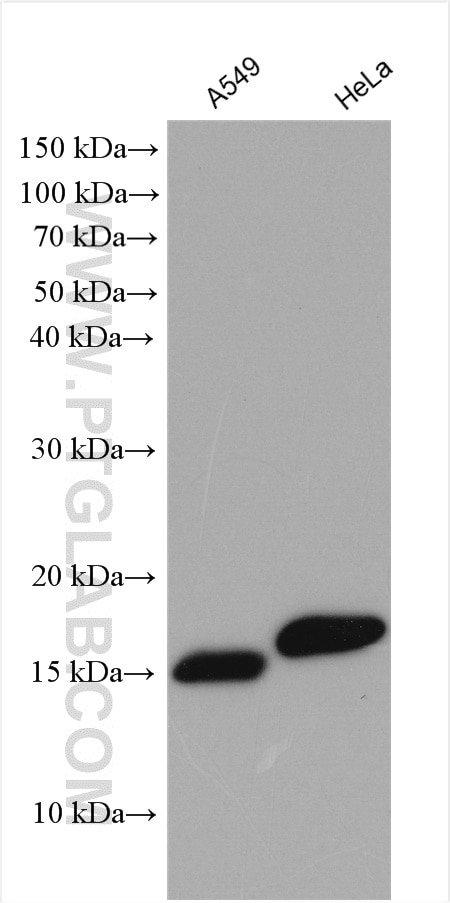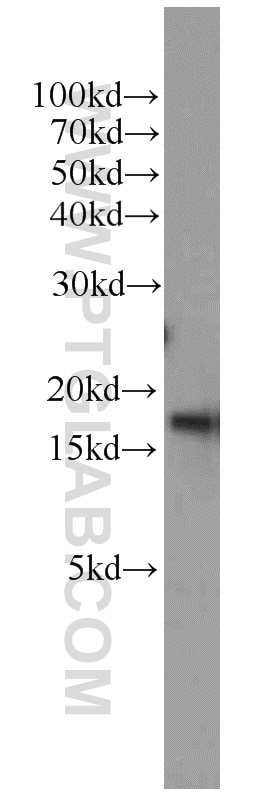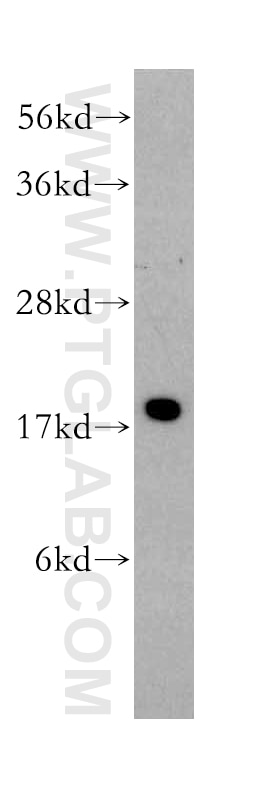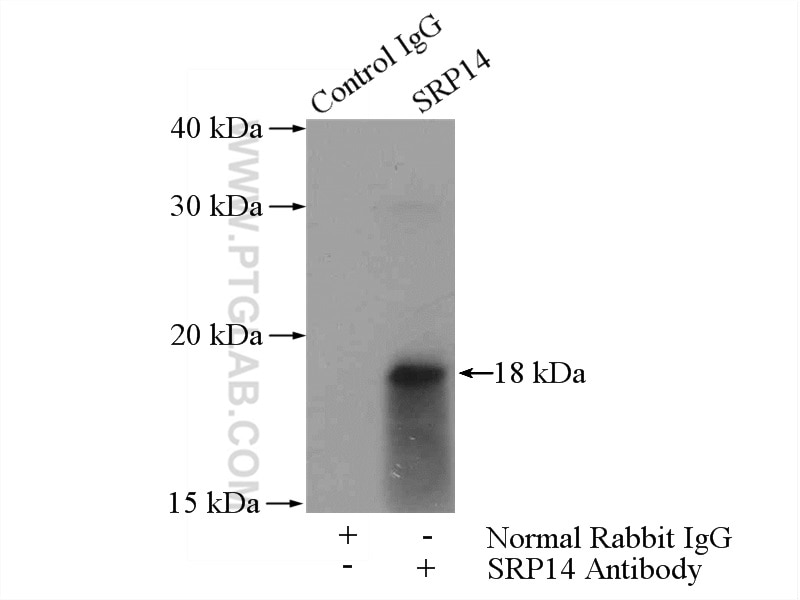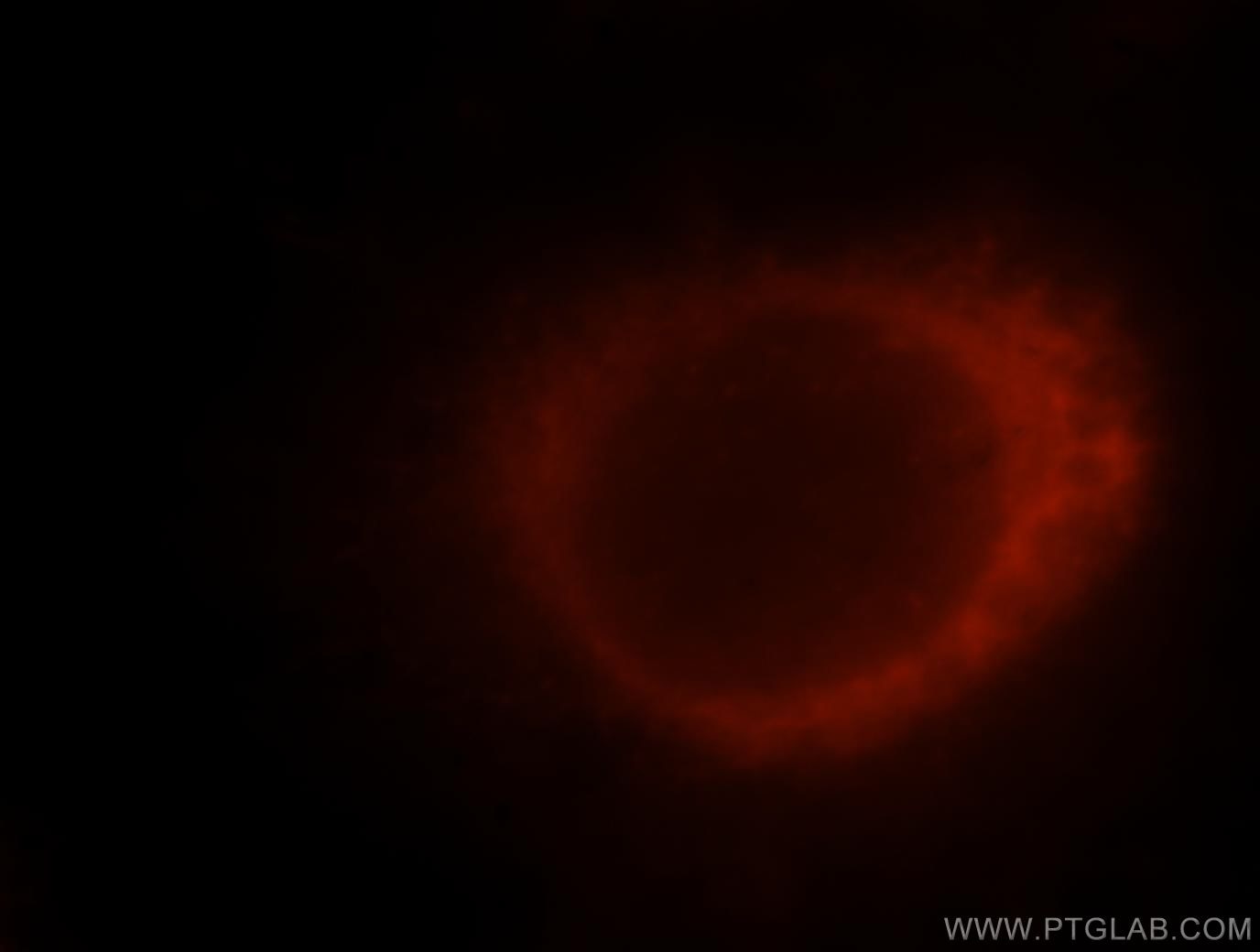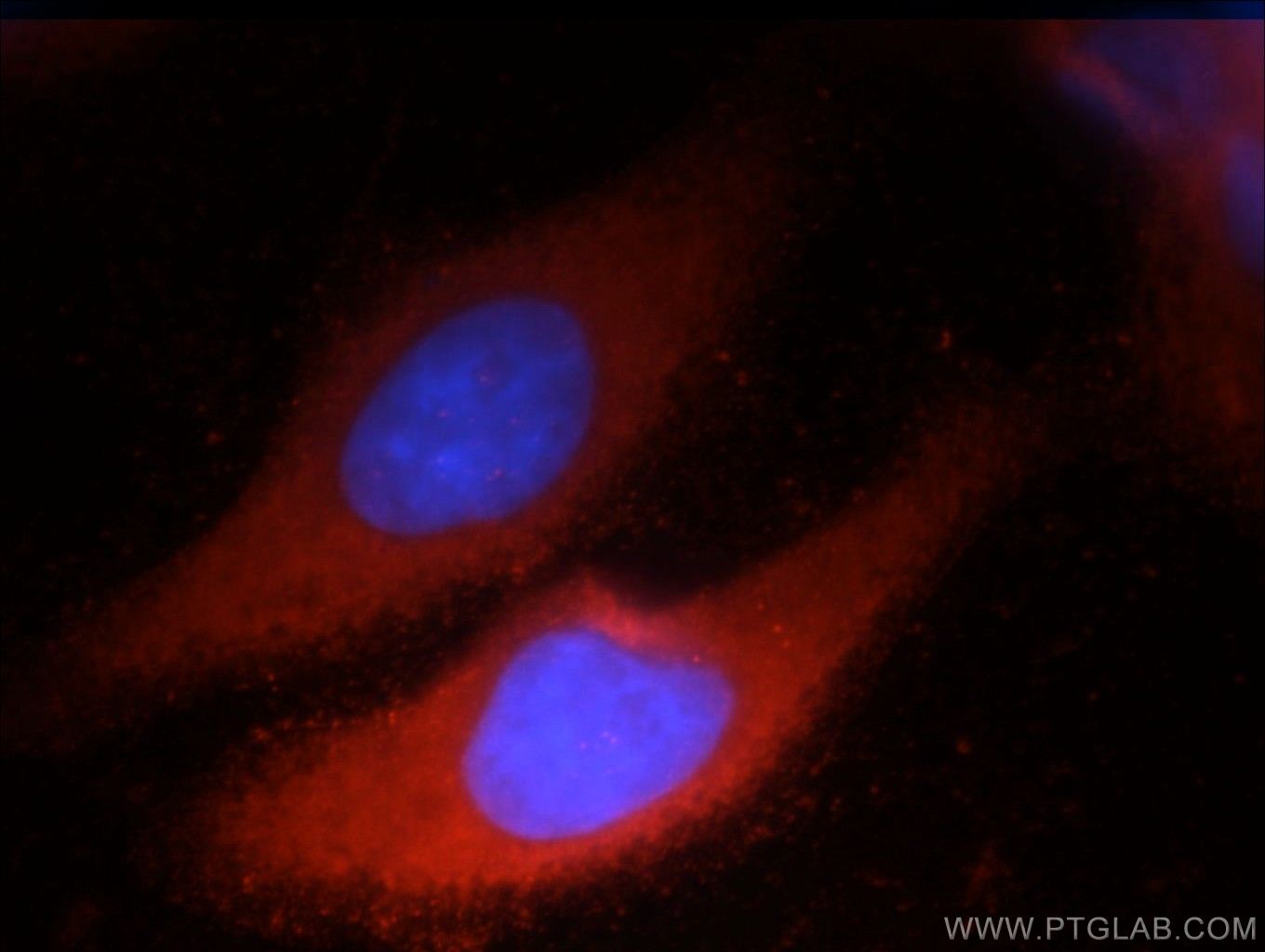- Phare
- Validé par KD/KO
Anticorps Polyclonal de lapin anti-SRP14
SRP14 Polyclonal Antibody for WB, IP, IF, ELISA
Hôte / Isotype
Lapin / IgG
Réactivité testée
Humain, rat et plus (1)
Applications
WB, IF/ICC, IP, ELISA
Conjugaison
Non conjugué
N° de cat : 11528-1-AP
Synonymes
Galerie de données de validation
Applications testées
| Résultats positifs en WB | cellules A549, cellules HeLa, tissu cardiaque humain |
| Résultats positifs en IP | cellules A549 |
| Résultats positifs en IF/ICC | cellules MCF-7, cellules HepG2 |
Dilution recommandée
| Application | Dilution |
|---|---|
| Western Blot (WB) | WB : 1:1000-1:4000 |
| Immunoprécipitation (IP) | IP : 0.5-4.0 ug for 1.0-3.0 mg of total protein lysate |
| Immunofluorescence (IF)/ICC | IF/ICC : 1:10-1:100 |
| It is recommended that this reagent should be titrated in each testing system to obtain optimal results. | |
| Sample-dependent, check data in validation data gallery | |
Applications publiées
| KD/KO | See 1 publications below |
| WB | See 11 publications below |
| IP | See 1 publications below |
Informations sur le produit
11528-1-AP cible SRP14 dans les applications de WB, IF/ICC, IP, ELISA et montre une réactivité avec des échantillons Humain, rat
| Réactivité | Humain, rat |
| Réactivité citée | Humain, souris |
| Hôte / Isotype | Lapin / IgG |
| Clonalité | Polyclonal |
| Type | Anticorps |
| Immunogène | SRP14 Protéine recombinante Ag2099 |
| Nom complet | signal recognition particle 14kDa (homologous Alu RNA binding protein) |
| Masse moléculaire calculée | 136 aa, 15 kDa |
| Poids moléculaire observé | 18 kDa |
| Numéro d’acquisition GenBank | BC035495 |
| Symbole du gène | SRP14 |
| Identification du gène (NCBI) | 6727 |
| Conjugaison | Non conjugué |
| Forme | Liquide |
| Méthode de purification | Purification par affinité contre l'antigène |
| Tampon de stockage | PBS avec azoture de sodium à 0,02 % et glycérol à 50 % pH 7,3 |
| Conditions de stockage | Stocker à -20°C. Stable pendant un an après l'expédition. L'aliquotage n'est pas nécessaire pour le stockage à -20oC Les 20ul contiennent 0,1% de BSA. |
Informations générales
Signal recognition particle(SRP) acts in three distinct ways: 1 it binds to the signal sequence of the nascent polypeptide to be translocated, which is exposed on the surface of the translating ribosome; 2 it temporarily retards the nascent polypeptide from further elongation; 3 it mediates docking of the SRP-ribosome-nascent polypeptide chain complex to the RER membrane via the heterodimeric SRP-receptor (SR). SRP14, also named as 18 kDa Alu RNA-binding protein, is a 136 amino acid protein. Signal recognition particle consists of a 7S RNA molecule of 300 nucleotides and six protein subunits: SRP72, SRP68, SRP54, SRP19, SRP14 and SRP9. SRP14 protein is a component of signal-recognition-particle that has a crucial role in targeting secretory proteins to the rough endoplasmic reticulum membrane. SRP9 together with SRP14 and the Alu portion of the SRP RNA, constitutes the elongation arrest domain of SRP. SRP14 form a heterodimer with SRP9, which recognizes Alu RNA and the related 7SL RNA.
Protocole
| Product Specific Protocols | |
|---|---|
| WB protocol for SRP14 antibody 11528-1-AP | Download protocol |
| IF protocol for SRP14 antibody 11528-1-AP | Download protocol |
| IP protocol for SRP14 antibody 11528-1-AP | Download protocol |
| Standard Protocols | |
|---|---|
| Click here to view our Standard Protocols |
Publications
| Species | Application | Title |
|---|---|---|
Cell Exosome RNA Unshielding Couples Stromal Activation to Pattern Recognition Receptor Signaling in Cancer.
| ||
Mol Cell Estrogen-Related Hormones Induce Apoptosis by Stabilizing Schlafen-12 Protein Turnover. | ||
Genes Dev Human intron-encoded Alu RNAs are processed and packaged into Wdr79-associated nucleoplasmic box H/ACA RNPs. | ||
Nucleic Acids Res Comprehensive analysis of the BC200 ribonucleoprotein reveals a reciprocal regulatory function with CSDE1/UNR. | ||
Nucleic Acids Res Implication of the SMN complex in the biogenesis and steady state level of the signal recognition particle. | ||
J Biol Chem The noncoding RNA BC200 associates with polysomes to positively regulate mRNA translation in tumor cells. |
